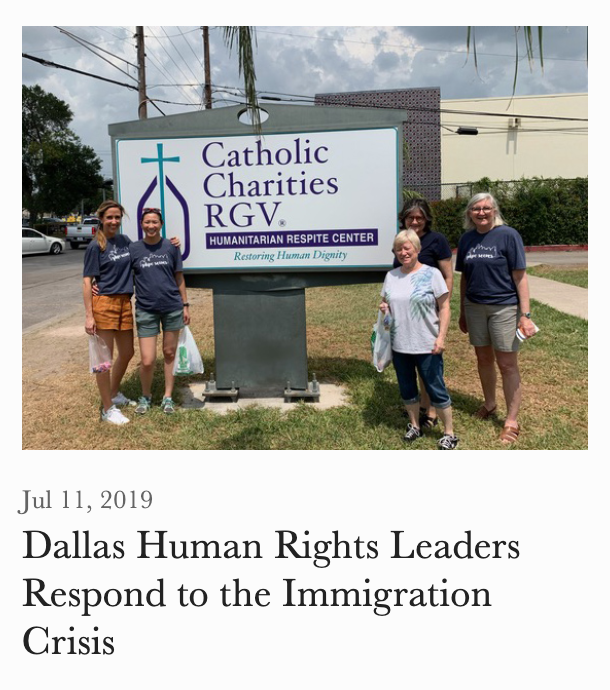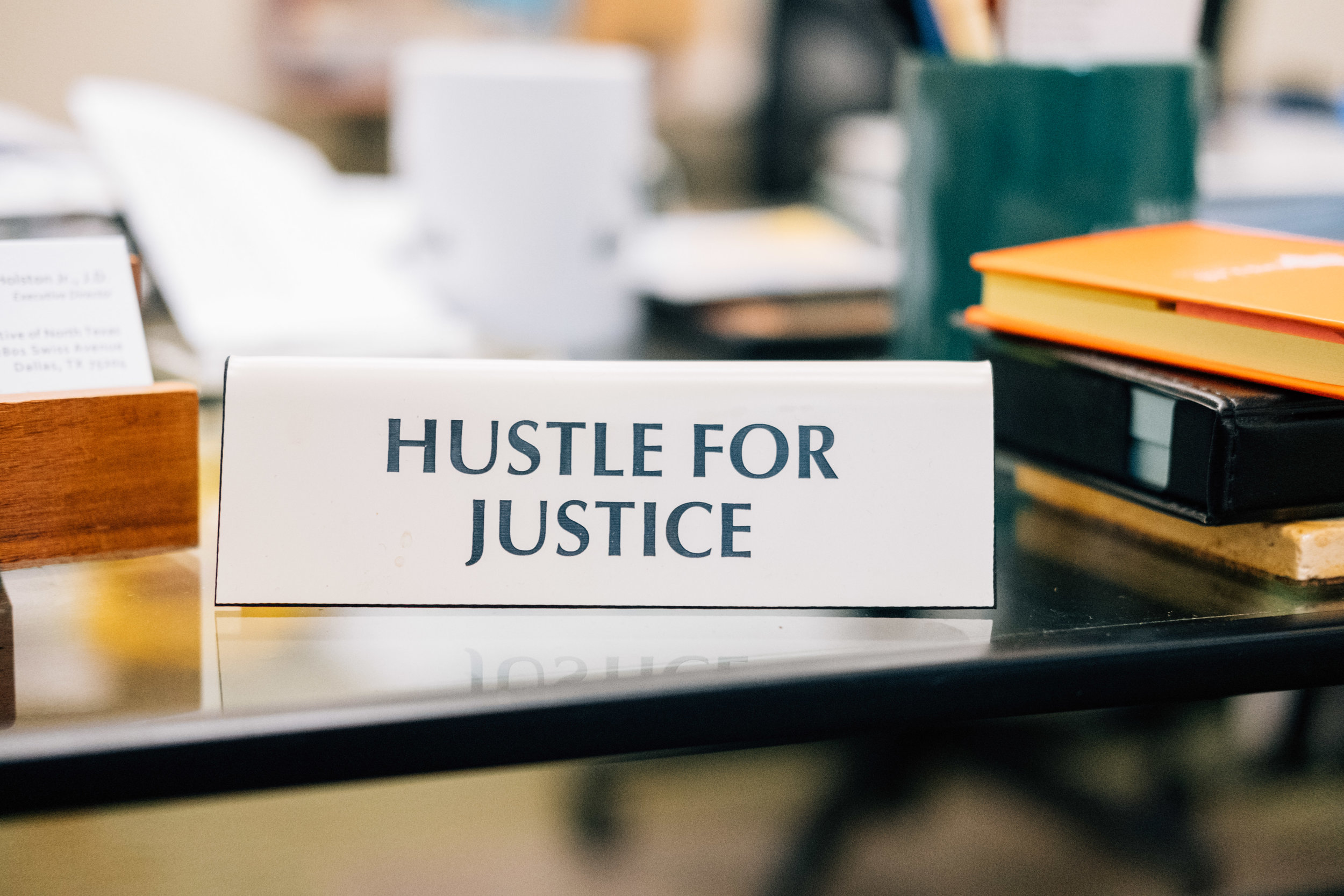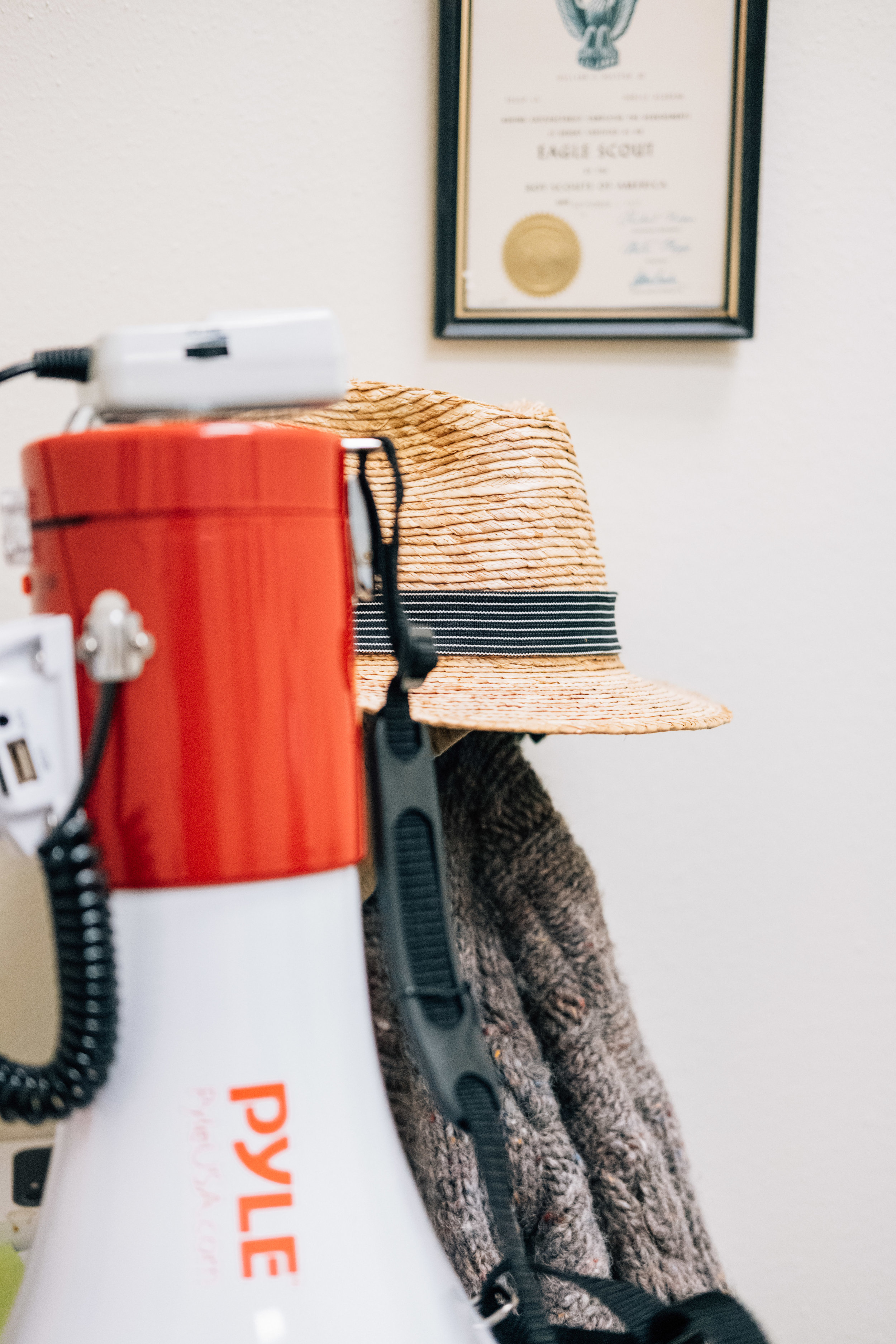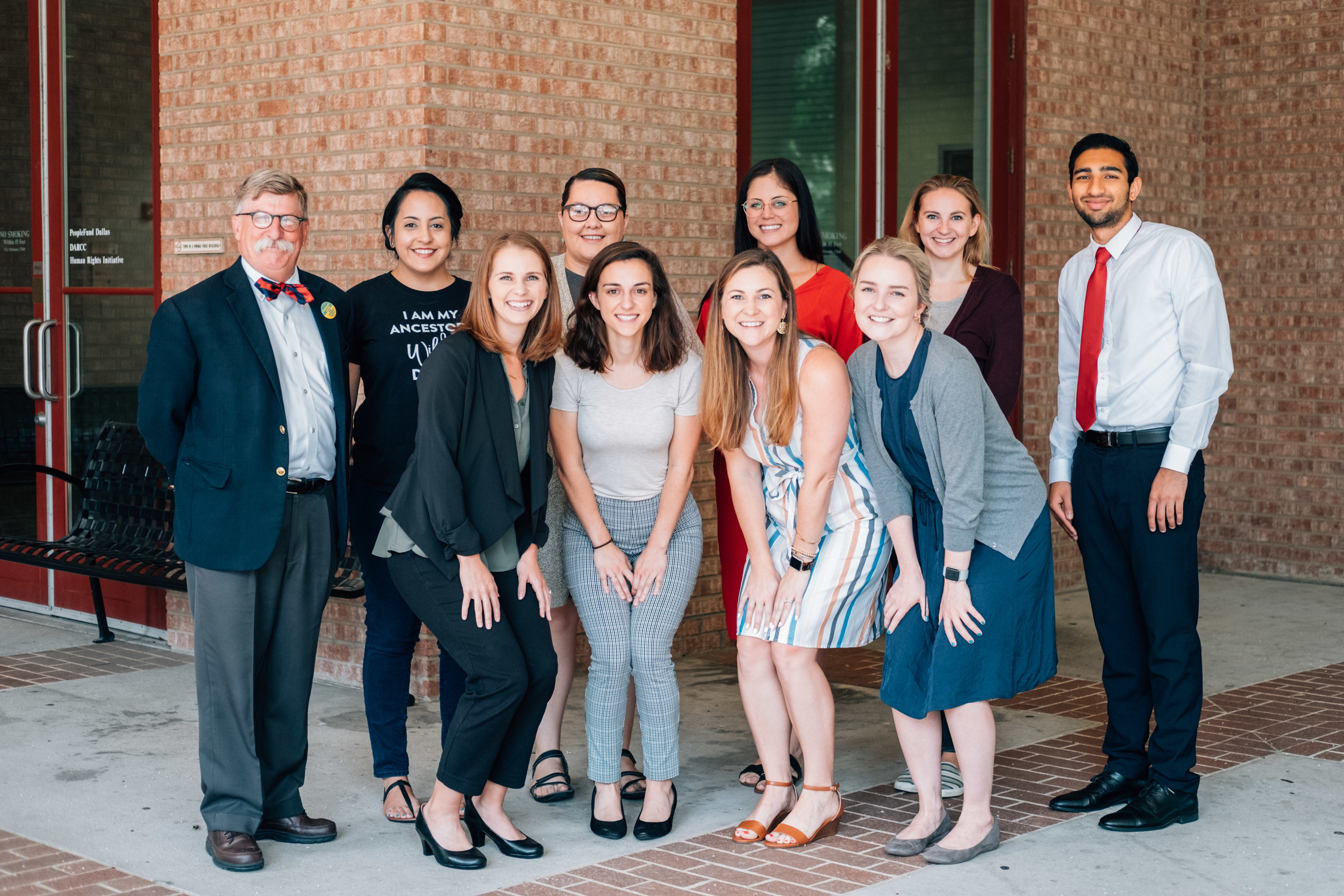Story by Mary Martin. Photos by Hunter Lacey.
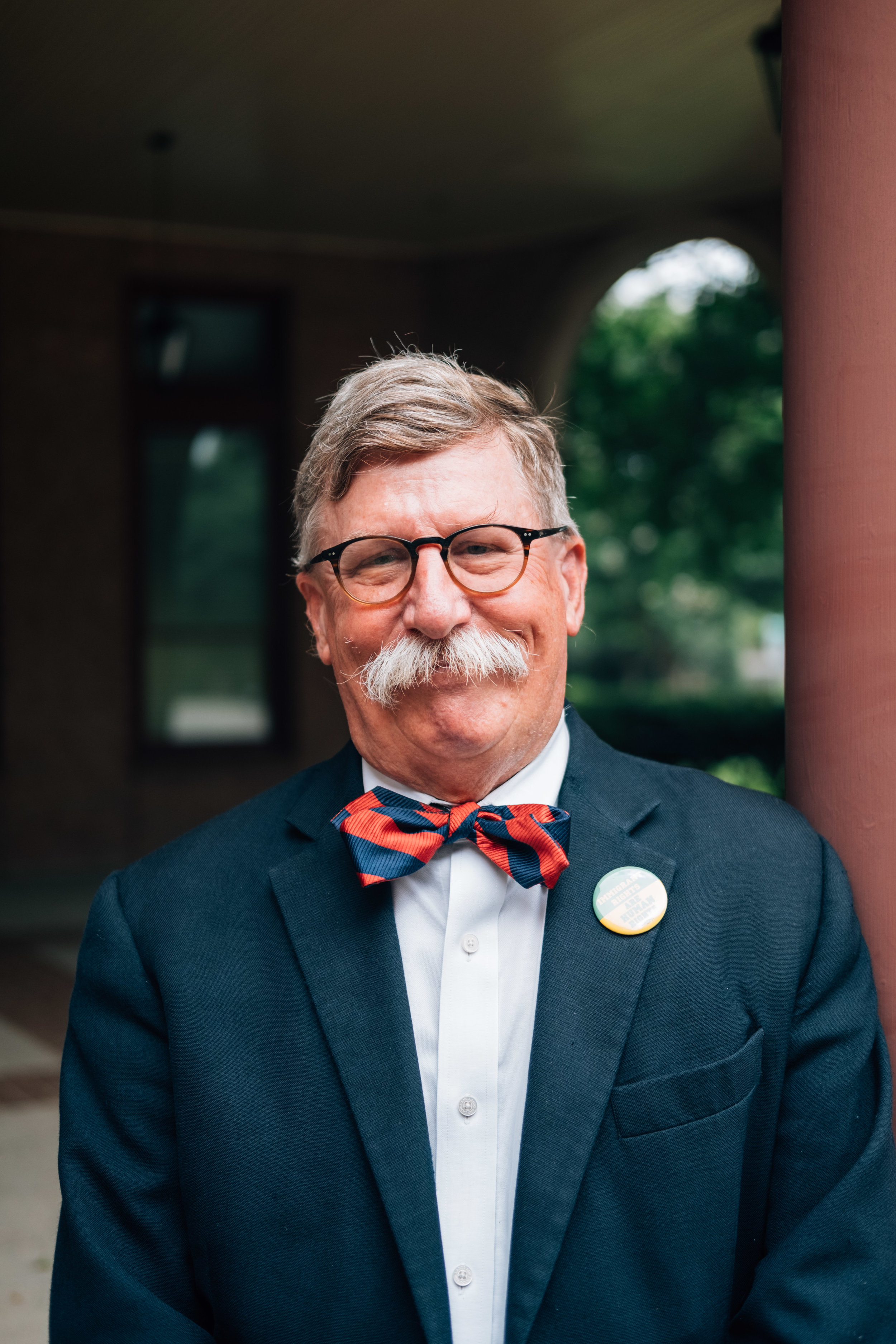
When Bill Holston began his law career, it was not out of grand aspirations to help the community through legal representation. The decision to go to law school was a practical one; a career that sounded like the right fit. “I thought it would be interesting. And people always told me that I would be a good lawyer because I like to argue,” Bill shared. “I thought, ‘This will be an interesting career and I can support a family.’ I didn’t even want to be rich. I just thought it would be a good, rewarding career – and it was.” But as Bill passed the bar exam and launched his own solo-practice, the opportunity to help others quickly presented itself.
In the mid-1980’s, when Bill was court-appointed to represent a burglary client from El Salvador, a Mennonite Missionary named Brad called Bill’s office. “Brad asked me if I knew anything about the Salvadoran civil war – and I didn’t,” Bill admitted. Brad explained that Bill’s client was one of many Salvadoran immigrants who had come to the United States because of the instability in Central America, and that the Mennonites were working to help those seeking asylum. Bill responded quickly and from the heart. “I gave this no thought at all and it changed my whole life. I told him if he ever needed a hand to give me a call. And he did.” Bill initially began providing pro-bono representation for unaccompanied minors—children whose parents were dead or missing—and helped them to receive guardianship so they could enroll in school.
After Bill experienced his first few pro-bono cases, he pursued further training in asylum law and took on his first true asylum case. His client was a Guatemalan woman whose husband was killed because of his work with a local labor union. When she began receiving death threats, she and her children crossed into the United States with a smuggler and ended up in Dallas. After representing her in a successful asylum case, Bill could see a future in this type of legal practice. “I realized this is the most interesting thing I’ve done as a lawyer and also the most fulfilling because I have helped save this family’s life.” Bill said. “I just fell in love with the work.”
For the next 25 years Bill made a decision to keep one pro-bono asylum case in his caseload at all times. When he finished one, he took on the next with the full support of Woodburn and Sullivan, the firm where he had become a partner. But as his legal research into the asylum process continued, his passion for the legal work grew into a passion for advocacy as well. Bill studied the plights of Russian Jews, Coptic Christians, Chinese Catholics, along with other oppressed people groups, and began writing editorials about global human rights issues. Pairing advocacy with representation turned out to be the most fulfilling work Bill could do.
In case after case Bill saw the human impact of his work, but until he met a client from the Democratic Republic of Congo (formerly Zaire), his pro-bono clients had simply felt like a good deed. This particular Central African client had finally won his case for asylum after fleeing political violence, and showed up at Bill’s office with his wife and family. “I wanted to thank you and have you meet my family,” the man said. It was then that Bill realized that this family had all been in hiding during the case, they had fled Zaire and were waiting in neighboring Congo until their husband and father had received asylum. Bill casually replied to the man’s thanks, “Oh, it was no problem. I was happy to do this case for you.” But the man stopped Bill and said, “No, I know what you did for me. You gave me my life.” This moment shifted Bill’s perspective forever, as he recognized the privilege in his skills and work.
In 2000 Bill began volunteering as a pro-bono lawyer with the Human Rights Initiative of North Texas, joining a team of passionate advocates and legal professionals. Human Rights Initiative (HRI) offers free legal and social services to people who have suffered human rights abuses, including asylum seekers, those protected under the Violence Against Women Act, immigrants who have faced domestic abuse, and human trafficking victims. Twelve years later the search for a new Executive Director of the organization ended with Bill. “During the interviews I told the founders that I knew they were interviewing people with more nonprofit management experience than me, but not anyone with greater passion for this work,” he shared.
Today Bill’s day begins with making coffee, emptying the office dishwasher, and paying bills. Then he begins his work overseeing a team of volunteer lawyers and a social services staff. “The imprint of our two founders is compassionate legal work at a high level and meeting the social needs of our clients,” Bill explained. Bill’s time is also focused on HRI’s rigorous intake process which includes a phone call, in-person interview, and staff discussion of each potential client which determines if the case is valid. HRI’s social service case manager partners with other social service providers in the community, like Agape Clinic, to ensure that all immediate client needs are met.
In light of the current immigration crisis, HRI’s services have not shifted. Without a cost-effective way of providing legal services in border cities, Bill and the HRI staff are committed to serving asylum seekers who have made their way to Dallas through visas, parole or bond release from immigration detention centers, or long-term immigrants who have experienced abuse.
Bill continues to fight against cynicism, holding out hope for a systematic change in the immigration system. Hope has showed up in the form of the collaboration in the faith community, as well as local businesses holding much-needed toiletry drives to support HRI clients. “Goodfriend Beer Garden was one of our first successful toiletry drives, and now Kim Dawson Modeling Agency holds a toiletry drive each Valentine’s Day to help keep our shelves stocked,” Bill shared.
Nature also provides Bill with a much needed reprieve from the intense work of asylum law. As a Texas Master Naturalist, Bill takes weekly hikes along trails throughout North Texas. He has also written extensively about hiking in Dallas, most recently his updated Ultimate Hiking Guide for D Magazine.
While not everyone can work as a pro-bono lawyer, Bill encourages everyone to get involved and see where one can help the cause of human rights. “Whatever you do, whatever skills you have, you can play a role,” Bill emphasized. “And don’t downplay philanthropy and small giving—it adds up and makes a significant difference, especially for small organizations.” Bill, along with his small but dedicated team, is proving this to be true, working with the resources they have to make freedom and human rights available to everyone.
If you know someone who is Doing Good in Dallas, we’d love to hear about it! Share their story with us.
